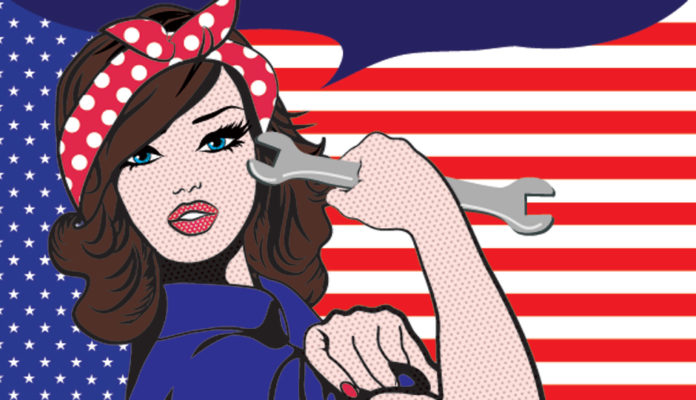If your teacher was like mine, she told you that Labor Day is our how we honor the American worker. True enough, but it is also a holiday that commemorates the failure of communism to take root in the American labor movement. Unlike any other holiday, Labor Day celebrates something that didn’t happen.
Labor Day got started on September 5, 1882 when a secretive and peculiar union started by Philadelphian tailors staged a parade in New York City. The Knights of Labor were so pleased with the turnout that they persuaded other unions to make the event an annual September tradition. As with Labor Day parades ever since, the purpose was more social than political. The parade was held when the weather was reliable. Festivities included families, beer, barbecue, and bands.
The Knights grew in strength, in part because they took up the cause of the eight hour workday. On May 1, 1886 they held the nation’s first large rally to make 9-5 the rule, not the exception. 80,000 people paraded down Chicago’s Michigan Avenue. Over the next few days, the rally became a strike and the strike became riot when the police attacked. A prominent anarchist was killed, as was at least one policeman. Historians have debated who did what to whom ever since, but the Haymarket Riot, as it came to be called, inspired unions around the world. Socialist unions in Europe declared May Day to be International Worker’s Day.
In time, communist countries followed suit and embraced May Day with a proletarian passion. But they too, lost track of the history of the event. I attended Yugoslavia’s May Day parade in Belgrade in 1972. The event was a huge, state-sponsored parade featuring endless soldiers marching and interminable speeches extolling the virtues of Comrade Tito. But nobody I spoke with (with the help of a translator) knew why May Day was on May first. None knew that they were commemorating an American labor struggle. To this day, most of the world celebrates Labor Day on May 1 in honor of the Haymarket Riot and the struggle of American workers for an eight hour workday — and most no longer remember why they do so.
 (The nomenklatura of course, did not forget. In 1985, American scholars doing research for a possible centennial commemoration of the Haymarket Riot were shocked to discover that most of the primary source documentation relating to the incident was not in Chicago, but had been transferred to then-communist East Berlin!)
(The nomenklatura of course, did not forget. In 1985, American scholars doing research for a possible centennial commemoration of the Haymarket Riot were shocked to discover that most of the primary source documentation relating to the incident was not in Chicago, but had been transferred to then-communist East Berlin!)
As it turns out, organized labor in America would have none of it. We celebrate Labor Day in September because President Grover Cleveland was rightly worried that a May first holiday would help strengthen the nascent US socialist movement. To prevent this (and assuredly not to honor labor) he declared the first Monday in September to be Labor Day and made it a federal holiday in 1887. The Knights of Labor endorsed this move, in part to distance themselves from the anarchists of Haymarket. A century later, the AFL-CIO continued this tradition — in part to distance itself from socialist labor unions in Europe and communist unions in the Soviet bloc and China.
In 1984, looking for a way to punch the Labor Day message up a bit, a group of us at the Silicon Valley AFL-CIO created a simple bumper sticker that said “Honor Labor”. The bumper sticker is still in widespread use in the Bay Area. It still strikes me as a good message for a holiday that still needs one.
Of course the right thing for Europe, Russia, China, and the rest of the world to do would be to reset the day that they honor labor to the first Monday in September. Don’t hold your breath.






